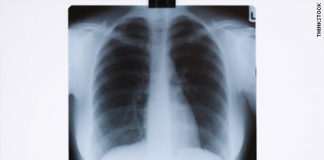Weightlifting Slashes Lymphedema Risk After Breast Cancer Treatment, Study Suggests
Weightlifting may play a key role in the prevention of the painful limb-swelling condition lymphedema following breast cancer treatment, according to new research from the University of Pennsylvania School of Medicine. Combined with the team's previous findings that the exercise limits a worsening of symptoms among women who already have lymphedema, the new data cements the reversal of long-running advice that breast cancer survivors should avoid lifting anything heavier than five pounds after they finish treatment.
Widely Used Arthritis Pill Protects Against Skin Cancer, Study Suggests
A widely used arthritis drug reduces the incidence of non-melanoma skin cancers -- the most common cancers in humans -- according to a study published this week in the Journal of the National Cancer Institute. The COX-2 inhibitor celecoxib (brand name Celebrex), which is currently approved for the treatment of osteoarthritis, rheumatoid arthritis and acute pain in adults, led to a 62 percent reduction in non-melanoma skin cancers, which includes basal cell carcinomas and squamous cell carcinomas.
Black Raspberries May Prevent Colon Cancer, Study Finds
Black raspberries are highly effective in preventing colorectal tumors in two mouse models of the disease, according to a University of Illinois at Chicago study. The findings are published in the November issue of Cancer Prevention Research.
Mortality Rates From Liver Diseases Underestimated, Researchers Say
Statistics from the Centers for Disease Control and Prevention (CDC) rank mortality related to chronic liver disease and cirrhosis as the 12th most common cause of death in adults in the U.S. Using a modified definition that includes diseases such as viral hepatitis, liver cancer and obesity-related fatty liver disease (liver diseases), Mayo Clinic-led researchers have found that liver-related mortality is as high as fourth for some age groups, and eighth overall.
Telomere Length Affects Colorectal Cancer Risk
For the first time, researchers have found a link between long telomeres and an increased risk for colorectal cancer, according to research presented at the American Association for Cancer Research special conference on Colorectal Cancer: Biology to Therapy, held in Philadelphia Oct. 27-30, 2010.
Drugs Used To Treat Osteoporosis Not Linked With Higher Risk Of...
Although some reports have suggested a link between the use of oral bisphosphonates (drugs that prevent the loss of bone mass) and esophageal cancer, analysis of medical data from more than 80,000 patients in the United Kingdom found that use of these drugs was not significantly associated with new cases of esophageal or gastric cancer, according to a study in the August 11 issue of JAMA.
Long Term Use Of Oral Bisphosphonates May Double Risk Of Esophageal...
People who take oral bisphosphonates for bone disease over five years may be doubling their risk of developing oesophageal cancer (cancer of the gullet), according to a new study published online in the British Medical Journal.
Some Bisphosphonates Users Unfamiliar With Drug’s Possible Side Effects On Oral...
People undergoing bisphosphonate therapy to prevent or treat osteoporosis (a thinning of the bones) may be unfamiliar with the drug and possible adverse side effects on oral health, according to a study in the May issue of the Journal of the American Dental Association (JADA).
Common Osteoporosis Drugs Are Associated With A Decrease In Risk Of...
Women who take some types of bone-building drugs used to prevent and treat osteoporosis may be at lower risk of breast cancer, according to a study by U.S. researchers published in the British Journal of Cancer.
Osteoporosis Drugs May Boost Cancer Risk
People who take bisphosphonates, or bone-strengthening drugs for osteoporosis, may have a slightly higher risk of developing esophageal cancer, especially if they take them for several years, a study out this week in the British Journal of Medicine finds.
Vitamin D May Treat Or Prevent Allergy To Common Mold
Research conducted by Dr. Jay Kolls, Professor and Chair of Genetics at LSU Health Sciences Center New Orleans, and colleagues, has found that vitamin D may be an effective therapeutic agent to treat or prevent allergy to a common mold that can complicate asthma and frequently affects patients with Cystic Fibrosis.
SPF On Your Plate: Researcher Connects The Mediterranean Diet With Skin...
We all want that summer glow that comes from a day at the beach, but taking in the rays can have long-term implications for our health. Now Dr. Niva Shapira of Tel Aviv University's School of Health Professions suggests a way to make fun in the sun safer -- and it's all in our food.














